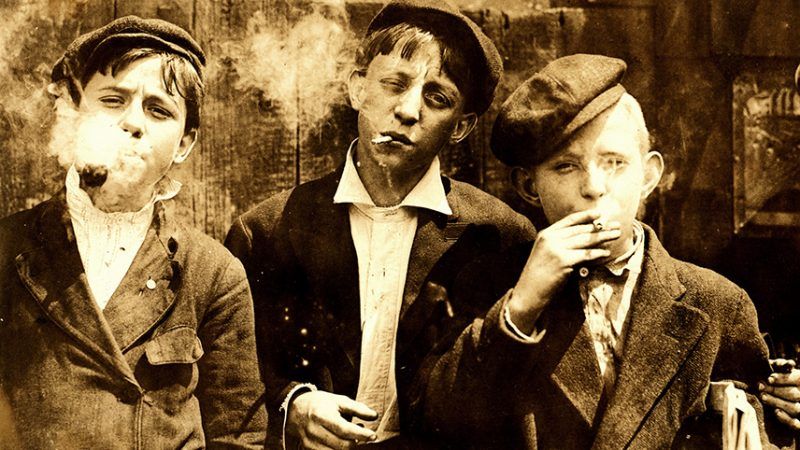Denver Is Hiring Teen Cigarette Narcs

Finding a job as a 16-year-old can be a challenge.
Luckily, Denver is offering a unique employment opportunity geared specifically toward youth. The title of this once-in-a-lifetime resume-building gig? Minor tobacco operative.
Though the job title smacks of clandestine doublespeak, the position is pretty straightforward. The ideal candidate conducts "compliance inspections of tobacco retailers" by attempting to illegally purchase cigarettes. As these operatives coax vendors to sell them a pack of smokes ("I totally left my ID in my dorm room"), a law enforcement agent hovers outside.
In other words, Denver is hiring teen cigarette narcs.
The recent job posting is actually a continuation of a program that started in January 2017. Denver Mayor Michael Hancock announced the rollout of the program by highlighting it in his latest budget. Described as "an increase in personnel services to hire on-call youth tobacco inspectors to conduct tobacco compliance inspections," one full-time equivalent of $26,900—six part-time positions starting at $12 per hour for 5–10 hours a week—was added to the Department of Environmental Health in 2017 budget.
These positions are funded by a statewide cigarette sales tax of an additional 84 cents per pack. Coloradans voted the sin tax into law in 2004, and the majority of the revenue is distributed to municipalities for the purpose of "health care and tobacco prevention programs." During the 2015–16 fiscal year, Colorado's "Prevention Detection Treatment Fund" spent $23.1 million funding programs such as Denver's minor tobacco operatives.
During the 2016 elections, Colorado voters narrowly defeated Amendment 72, which would have increased the existing sales tax by another $1.75 per pack. Projections were that over $315 million would be collected annually if the measure had passed. Opponents were concerned—and rightfully so—that the funds were a blank check that committed future legislatures to funding programs that were not transparent or accountable.
As stated in its annual report on "key strategic metrics," the Department of Environmental Health is hoping to increase "the percent of retail tobacco visits with sales to minors." The noncompliance rate of its sting operations rose from 8.3 percent in 2014 to 16 percent in 2015. In fact, the department hopes to snag even more vendors, projecting a 23 percent noncompliance rate by the end of 2017.
But if the goal is to reduce sales to minors, why is the department looking to entrap more vendors? Shouldn't the department want to become a deterrent, inspiring retailers to look more closely at IDs when peddling smokes?
It seems these compliance checks have more to do with revenue seeking and less to do with smoking cessation.
People are buying fewer tobacco products already. This means sales tax receipts are down. If voters won't approve new taxes—a perk of Colorado's Taxpayer Bill of Rights is that it empowers voters to refuse additional levies—then local governments will have to find new and creative ways to generate revenue, such as employing the Marlboro Mob to shake down vendors for fines.
Under Colorado law, selling cigarettes to underage buyers carries a potential fine of $15,000. According to the Colorado Department of Revenue website, its tobacco enforcement division conducts approximately 2,500 retailer checks per year. Assuming an 80 percent compliance rate (which every state is required to maintain by federal law), roughly 500 retailers could still be pinched annually, meaning the state could theoretically grab up to $7.5 million in citation revenue.
This article originally appeared in print under the headline "Now Hiring: Teen Cigarette Narcs."


Show Comments (23)